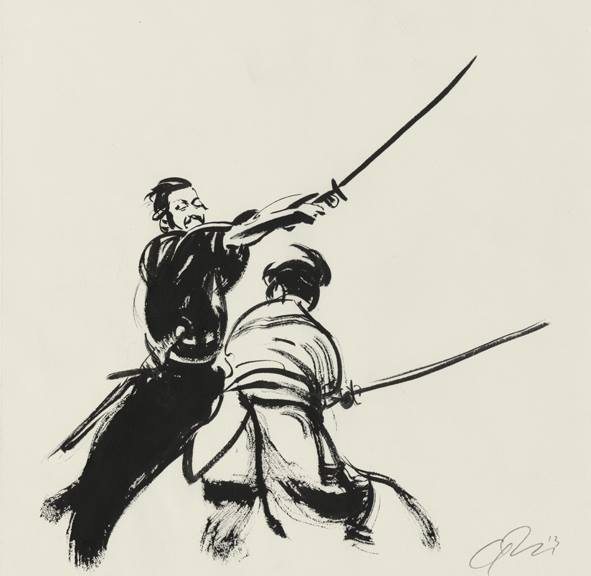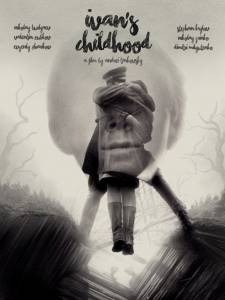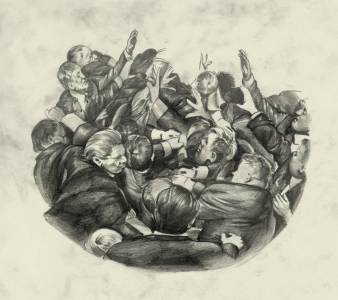No not that kind of fight. It’s the ongoing and perpetual push/pull of one’s artistic passions versus the client’s desires. It’s what keeps a lot of people out of this thing, and for some of the mentally questionable, some of us from ever leaving it. Full disclosure, I dig assignments. I give them to myself all the time. There’s an inherent contained potential to puzzle out when you’ve got something to solve I keep returning to. I love the struggle to push artistic ideals through practicality and see what comes out the other side. Now it’s not always a good experience, sometimes you lose, but winning is sweet in interesting ways that I find makes it all worthwhile. When to push that art ball forward and when to hold back, that’s the trick.
And that’s why we’re here today.
If anyone tells you there’s rules to follow, they’re lying to you. Every job is different every client/personality brings different pressures to the table. You could run the same job past a different group of people and you’d end up in an astronomically different place at the end. Hell I bet good money you could do this with the SAME people and end up with a different outcome. That’s what makes all of this so thrilling but also what makes it impossible to prepare for, and thus sometimes terrifying. Big jobs with high profiles invite more opinions and scrutiny, on all ends from everywhere and even after your thing is done, it doesn’t stop because everyone will have an option of how well/poorly you done did. Smaller boutique experiments are arenas where your dogs can run more freely and as a result most of the time, end up with some truly advancing and interesting work if you take advantage of the opportunity.
There are usually three major factors that go into what shapes the experience of a given project. None guaranteee failure or success and all depend on how you surf the wave so you get another crack at the wheel. This is the most important lesson here, regardless of anything else I’ll speak to: even a project that goes pear shaped on you could still bring forth more work as an outcome. An AD or Editor who sees you fighting the good fight and being there when it counts won’t forget that. (It’s like surviving a battle except this one is usually fought with butts in chairs in front of computers on the phone or drawing, obviously). How you manage to get through the shot storm can endear you in ways the ease of a smooth ride can never hope to achieve.
Now, back to the three things I teased that can determine the artistic integrity, or diminish it: Client, Budget/Scale, and You. Those are the axis upon which the project spins. I’m certain there’s a Venn diagram that can be made to illustrate the interaction of these things, but I’ll leave that to smarter folk to depict. Simply put, often when one goes up, the other drops.
CLIENT
There’s some who meddle others who trust and every shape in between. Some that meddle most do so because they’re in deep possession of the thing they’ve hired you to tackle and can offer insight that can be invaluable. I work with certain writers from whom I rely upon delightedly for their briefs and deep knowledge. it makes my job much more fun and easy to be able to have access to that kind of intimacy with the subject. Sometimes you can also get this from an AD or Editor brief too. Some meddle in controlling ways that’ll, just are, and you need to manage that too. Some clients see you as a glove to insert their hand into, others are hiring you to do what you do so well, but for them. You’ll get a bead on which is which right away usually, so you can adjust yourself to the reality as soon as you get going. At the end of the day, you do indeed have the power to say yes or no, but like any old school catholic marriage, once you’ve agree to take it on, you are honor bound, (and contractually obligated), to see the ride through to its end, whatever end that may be. There is no guarantee that a job will go well, only that it will come and then go. Knowing your part and role in making it go well is very much in your hands. While your agency in a creative conflict goes up the more established you are as an artist, it never goes away or can be so high that it doesn’t;t buckle under the client’s demands. You are after all, simply put, working for them and if they want to go in a direction different from yours, that can be a problem you might find hard solving on your own to your art’s desire. I’ve found these situations happen consistently each and every year I’ve worked always. Feeling out that client’s situation can help you to see how big a field you get to run in- if it’s big, run like a maniac and really push the envelope. It can also forecast how small your field is and allow you to, going in, not over invest personally in the thing you’re doing so as to avoid mistaking art for transaction. There’s no shame in this. Sometimes you need to pay your damn rent so you take on a job where you find yourself largely in service of another’s vision, and that’s totally fine. There can be real value and fun in there, just avoid forgetting whose socks you’re wearing and you can avoid a lot of unnecessary, and often costly fights, when you forget your personal coinage in the gig.
BUDGET/SCALE
Similar to the above, whether you were hand picked by a famous actor or director to draw a thing for their movie, some plumb job at a mega property, or a bool cover for someone’s first novel through a micro press, the position and import of the job and property can also early on, let you know how much juice you might have. And a big scale high profile thing can be the most artistically freeing gig you’ve had all year, or be a Vader like choke and rise in a cold sterile hall until you submit. Again it always depends. I’ve done a high profile book that had a massive exposure element to it and because it was creator owned and we had a strong and powerful and brilliant leash-holding ally in our editor, it played out like we were kids in a candy shop. I’ve re4cently done a high profile huge job for a popular film that was as likewise free and open as any personal 52 Weeks Project I’ve ever tackled. The reverse has also been true, and more common by miles. Usually the higher the scale the more people involved and the more fights and chase to the mediocre middle you’re likely to encounter. Not a dig here, it’s just what happens when more voices join the choir- the middle and compromise become the goal rather than an edgy artistic voice. Personally these situations can be for me, the most frustrating of all. I think a terrible thing can engender as much chatter as a tremendous thing, but a middling boring inoffensive thing is a forgotten thing and that is the worst thing you want to avoid. Sometimes in these fights the goal is the end at any cost, sometimes it can at best be about not getting all the way to where you wanted to go, but just managing to push the ball forward a few yards and decide that’s what victory looks like.
(As a sidebar, let me remind you, these situations can be really frustrating and after the thing is out and people start grousing about how derivative or null the work is to tickle you into blaming the client… DO NOT DO THIS. Look, to nail it down: You did the work, own it and take responsibility for it. You can be honest about how you felt like it could go further perhaps, but always always remember what you do when you make art commercially is to advocate for its positives at all times in public. In private over drinks with colleagues, let the dogs loose. it can be very therapeutic. But even if you found yourself at the mercy of a big job’s middling desires and ended up losing every fight to make the thing better than it turned out to be, you are responsible as well for it at the end by the very nature of your participation- betraying that does not look good in the eyes of anyone you need to look good in the eyes of, and it makes you seem potentially disloyal to a client or commissioner. Just swallow hard smile and nod and support the work and move on to the next one as swiftly as you can. You can always look back and say it wasn’t;t your favorite or didn’t;t go where you hoped later when the stakes are lower… but give that 5-10 years before you start grousing like that in public. And even then, think twice. Don’t mistake you loyalty to counter an online blog person with the client or property you are working for. Dance with what brung you should be the law of the land. If you don’t want to dance with them again, don’t. Again, this isn’t active service in the military: you do have a choice).
YOU
A personal connection to the work or subject you’re tackling can really ramp up the heart investment in a job in a good way. But it can also invite passions and over knowledge that can cause you to be tone deaf to certain conflicting notes or blind you the landscape of a creative battle. I know artists who find great joy in any chance to work and I confess I feel a bit of that myself on a regular basis. It can come from recognizing how fortunate one is to have such uptown problems or it can come from sheer love of the dance. Either way that’s a good thing and you should try and always keep that fire burning. If it’s not there, if you can find no joy in the work before you, it will show in the work. It will also show in how you deal with it. However, In certain fights having a take it or leave it attitude at certain stages of the job can be a real boon. The contract period in particular- if you aren’t desperate for the job, you should use that agency to go for as much as you think you want to do it. Really reach for the stars, and if they balk, you’ll usually get bargained downward, but still miles upward from where they may have begun. Or you can blow it and they find a cheaper artist to run with. Either way you win because you had little or nothing to lose. This is an ideal footing in any gig that arrives. But this attitude must be stowed once you’re working. Being dismissive and cavalier can be a dick move once everyone’s agreed to terms and you’re off to work. It’s like what being president should be like: You run for yourself to get the job, and once you’ve got it, you serve fully the office you are gifted with running, and must stop making it about you anymore. It’s the same thing here but on a decidedly and less consequential scale.
I’ve found the worst case scenario is when you’ve got a gig with a big budget and profile, a lot of time to suss it out. It’s altogether common, but when that happens, it becomes more about slashing and burning through an endless field of brambles rather than running a sprint through an open field. Some publishers believe in letting their creatives run free to garner the best results, whereas others prefer to grind what they consider the best work through a system of approval meetings and committee input. It really helps to know going in what you’re in for. The tactics behind getting your notion past a huge and roiling committee system is utterly different than with a boutique situation. If you’re a hire gun on say, a Harry Potter book or a Star Wars property, know you are int he service of a giant beast’s whims and desires, not the other way around. Go into the arena with one of these gigs as if you are the most valued player on the field and you’ll get taught otherwise quickly and harshly. But go in knowing what you’re facing allows you to fight the battle from the mosquito’s vantage, and sometimes… more often than not even… the tactical mosquito can win.
Whatever the range and outcome, I again encourage you all to see the career against the job. The long game over the short sugar high. Eating a little crow today on a job might buy credit for something you really want to do later. Always think about the next job not matter how well or poorly the one you’re in is going. Ask yourself the relevant questions, “Does this serve my public portfolio?” “Does this relationship deserve to be nodded to or burned down?”, “What is the impact of this on that tomorrow?”, and etc… The ability to dance around the landmines and temptations for melodrama at the expense of your reputation can be the keystone to your success and longevity as an artist… or it could be the thing that has you working in the world’s last Blockbuster video in Alaska until closes down forever, leading to a long miserable life in a drafty yurt, tearfully sipping bark coffee and staring off at a horizon you will never meet.
Generally speaking my overall perspective is more the fly-like-a-butterfly, sting-like-a-bee approach wherever possible. No one like a bully or wants to work with a maniac. Being strong willed doesn’t have to become this, and keeping a respectful approach in line and knowing when best to bend rather than break can be the secret sauce to any tense moment. Passion is fine and advocating hard for your vision is both good and expected. But also knowing when to hold em and when to fold em, can be even more valuable to you and your career. Every artist needs to develop a strong advice for themselves, and avoid bringing in your personal outside pathos into a fight where they don’t belong. Knowing also where your limits are letting your agent or editor fight where you’re not at your strongest, and being able to tell that difference can be essential too. You don’t have to be alone in this battle and not every adversary is an enemy. Again you all share the same endgame goal here: to make the most successful work. That’s common ground to build on, and reaching back to that touchstone, especially in the heat of a disagreement can be what saves a project from collapsing into ruin, and your relationship as well. being friendly agreeable and open minded doesn’t also mean being a doormat. know the difference and learn where best to apply your best way forward tactfully. The realty truth at the end of all of this is that commercial work is a team sport, and star players may get all the press but it’s the team that wins the games. Be an asset not a detriment to your team, and you’ll be that for your work and your overall career. Sometimes the most important asset is knowing when to back off and when to push hard forward, artistic ideas notwithstanding. Pick your battles, trust your people, and look to the opportunity to do it again. This kind of work is always privilege, and never a right. Remembering that can make even a bad day smell a bit better. And provide you with that better tomorrow that will make you forget the bad ones that lead to it.
















Recent Comments